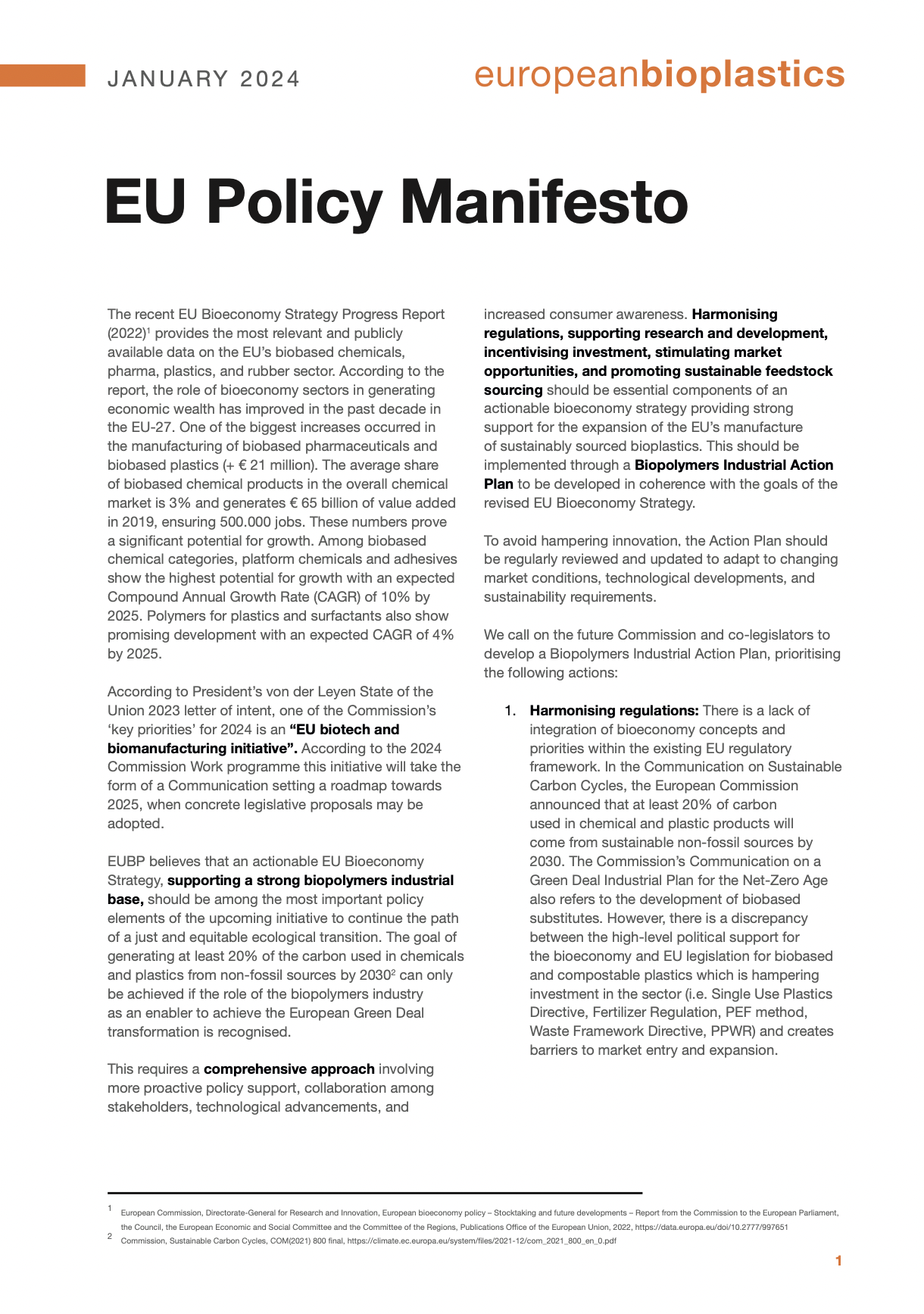The recent EU Bioeconomy Strategy Progress Report (2022)* provides the most relevant and publicly available data on the EU’s biobased chemicals, pharma, plastics, and rubber sector. According to the report, the role of bioeconomy sectors in generating economic wealth has improved in the past decade in the EU-27. One of the biggest increases occurred in the manufacturing of biobased pharmaceuticals and biobased plastics (+ € 21 million). The average share of biobased chemical products in the overall chemical market is 3% and generates € 65 billion of value added in 2019, ensuring 500.000 jobs. These numbers prove a significant potential for growth. Among biobased chemical categories, platform chemicals and adhesives show the highest potential for growth with an expected Compound Annual Growth Rate (CAGR) of 10% by 2025. Polymers for plastics and surfactants also show promising development with an expected CAGR of 4% by 2025.
According to President’s von der Leyen State of the Union 2023 letter of intent, one of the Commission’s ‘key priorities’ for 2024 is an “EU biotech and biomanufacturing initiative”. According to the 2024 Commission Work programme this initiative will take the form of a Communication setting a roadmap towards 2025, when concrete legislative proposals may be adopted.
EUBP believes that an actionable EU Bioeconomy Strategy, supporting a strong biopolymers industrial base, should be among the most important policy elements of the upcoming initiative to continue the path of a just and equitable ecological transition. The goal of generating at least 20% of the carbon used in chemicals and plastics from non-fossil sources by 2030 can only be achieved if the role of the biopolymers industry as an enabler to achieve the European Green Deal transformation is recognised.
This requires a comprehensive approach involving more proactive policy support, collaboration among stakeholders, technological advancements, and increased consumer awareness. Harmonising regulations, supporting research and development, incentivising investment, stimulating market opportunities, and promoting sustainable feedstock sourcing should be essential components of an actionable bioeconomy strategy providing strong support for the expansion of the EU’s manufacture of sustainably sourced bioplastics. This should be implemented through a Biopolymers Industrial Action Plan to be developed in coherence with the goals of the revised EU Bioeconomy Strategy.
